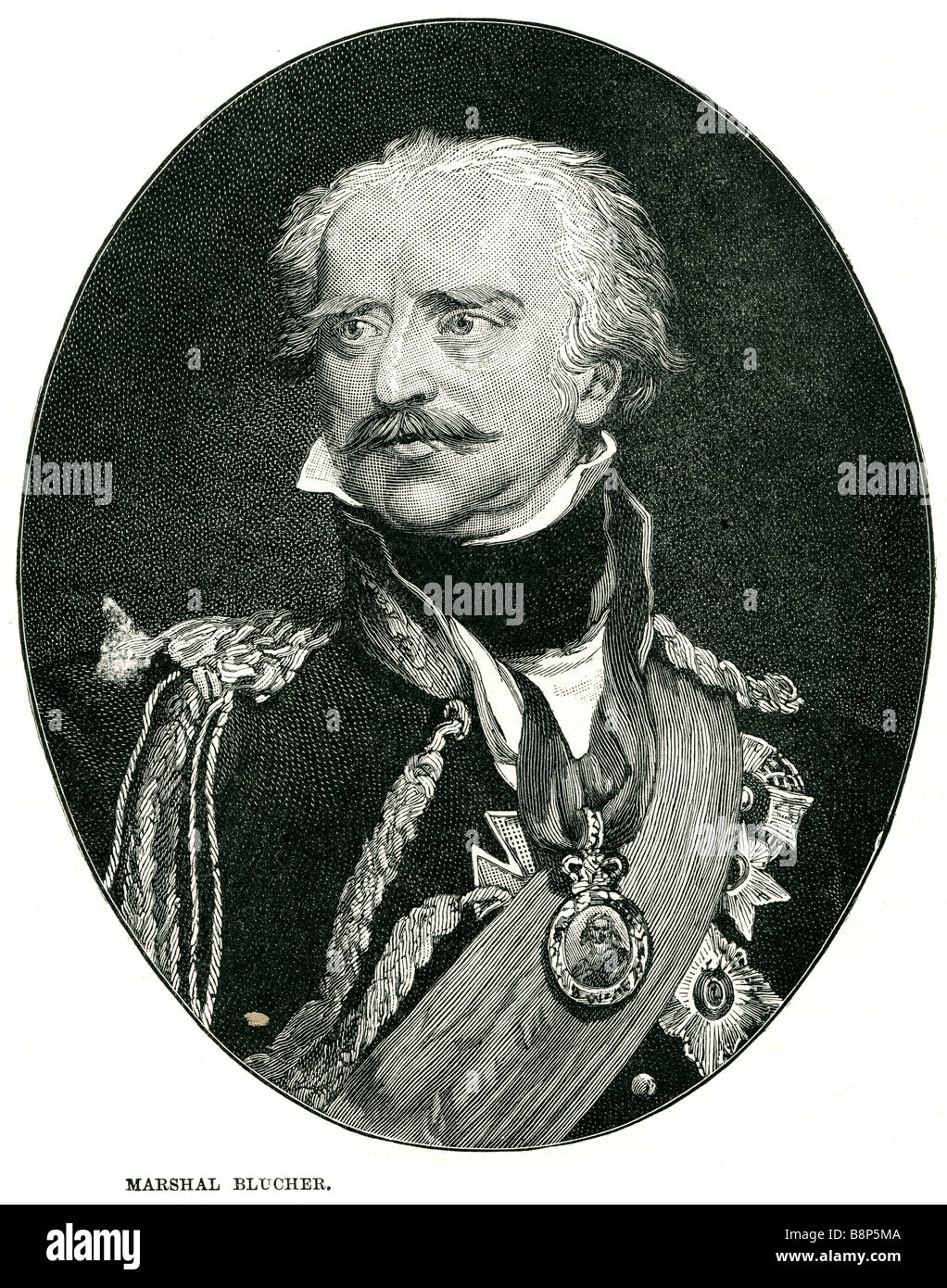marshal blucher Gebhard Leberecht von Blücher Fürst Prince von Wahlstatt December 16, 1742 - September 12, 1819

Image details
Contributor:
19th era / Alamy Stock PhotoImage ID:
B8P5MAFile size:
54.5 MB (5.1 MB Compressed download)Releases:
Model - no | Property - noDo I need a release?Dimensions:
3871 x 4921 px | 32.8 x 41.7 cm | 12.9 x 16.4 inches | 300dpiMore information:
Gebhard Leberecht von Blücher, Fürst (Prince) von Wahlstatt (IPA: [gɛphaɐt lebəʁɛçt fɔn blyçɐ]; December 16, 1742 - September 12, 1819), Graf (Count), later elevated to Fürst (Prince) von Wahlstatt, was a Prussian Generalfeldmarschall (field marshal) who led his army against Napoleon I at the Battle of the Nations at Leipzig in 1813 and at the Battle of Waterloo in 1815 with the Duke of Wellington. In his honour a bust of him stands in the German Walhalla temple near Regensburg. The honorary citizen of Berlin, Hamburg and Rostock bore the nickname "Marschall Vorwärts" ("Marshal Forwards!") because of his approach to warfare. There is a German idiom to this day, "ran wie Blücher" ("on it like Blücher"), meaning that someone is taking very direct and aggressive action, in war or otherwise. He was one of the leaders of the war party in Prussia in 1805–1806, and served as a cavalry general in the disastrous campaign of the latter year. At Auerstedt Blücher repeatedly charged at the head of the Prussian cavalry, but too early and without success. In the retreat of the broken armies he commanded the rearguard of Prince Hohenlohe's corps, and upon the capitulation of the main body at Prenzlau, he led a remnant of the Prussian army away to the north, after having secured 34 cannon in cooperation with Scharnhorst. In the neighborhood of Lübeck he fought a series of combats, which, however, ended in his being forced to surrender at Ratekau (November 7, 1806). Blücher insisted that a clause be written in the capitulation document that he had to surrender due to lack of provisions and ammunition, and that his soldiers be honoured by a French formation along the street. He was allowed keep his sabre and to move freely, only bound by his word of honour, and soon was exchanged for Marshal Claude Victor-Perrin, duc de Belluno, and was actively employed in Pomerania, at Berlin and at Königsberg until the conclusion of the war.